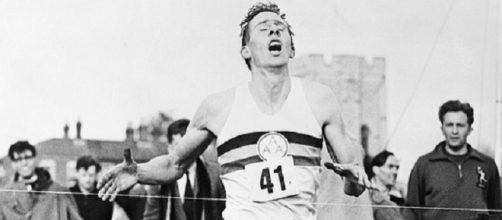The world of athletics has waved goodbye to the man who broke the fabled four-minute barrier for the mile distance, with the sad news of the death of Sir Roger Bannister at the age of 88. Few historians of the sport will ever forget his ground-breaking achievement at Iffley Road on 6th May, 1954, when he moved the event into unchartered territory, setting a world record of three minutes 59.4 seconds.
As the current crop of the world’s top athletes competed in the World Indoor Athletics Championships in Birmingham, it was perhaps poignant that Bannister’s death coincided with that competition given his own sizeable contribution to the sport.
Landmark became achievable
His record only stood for a mere 46 days though, as the seemingly unattainable landmark suddenly became a very real possibility for the middle-distance stars of his era. His great rival the Australian John Landy eclipsed his time by 1.4 seconds in Turku and the record has continued to be progressed in the intervening years, currently standing at a staggering three minutes 43.13 seconds to the Moroccan star Hicham El Guerrouj.
Bannister vanquished Landy
Global success in terms of silverware eluded Bannister in the main, although he did claim gold at the Commonwealth Games in 1954 in Vancouver in what was affectionately labelled as “The Miracle Mile”. With Landy and Bannister going head to head in the event, the Australian led for most of the race until his English rival surged past around the final bend and strode to a satisfying victory.
Disappointment drove him on
Bannister had narrowly missing out on a medal at the Helsinki Olympics two years earlier, despite claiming the British record over 1500m in 4th place and that disappointment no doubt contributed to his determination to make his mark in the years to come. It is certainly believed to have been a huge factor in his motivation to crack the four-minute barrier for the slightly longer distance.
Career in medicine
The world of medicine played a major part in his life away from the sporting arena and he ultimately became a leading neurologist. Despite being diagnosed with Parkinson’s disease back in 2011 – the irony not being lost on him given his chosen career- the hugely-respected and admired former athlete battled bravely up to the end.
His legacy will endure and the grainy black and white image of him breasting the tape on the cinder track in Oxford back in 1954 will long remain as an iconic image after his death.


